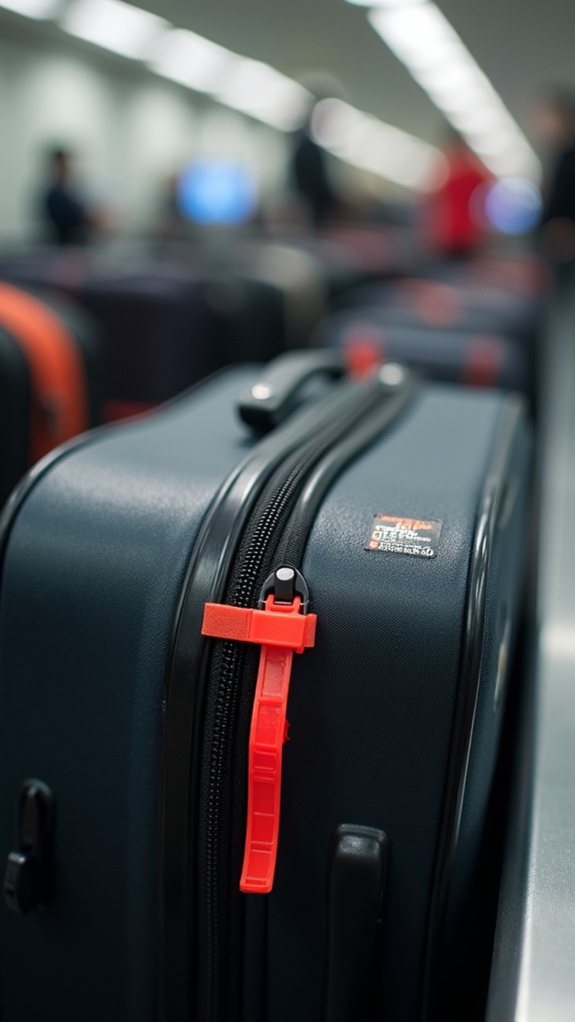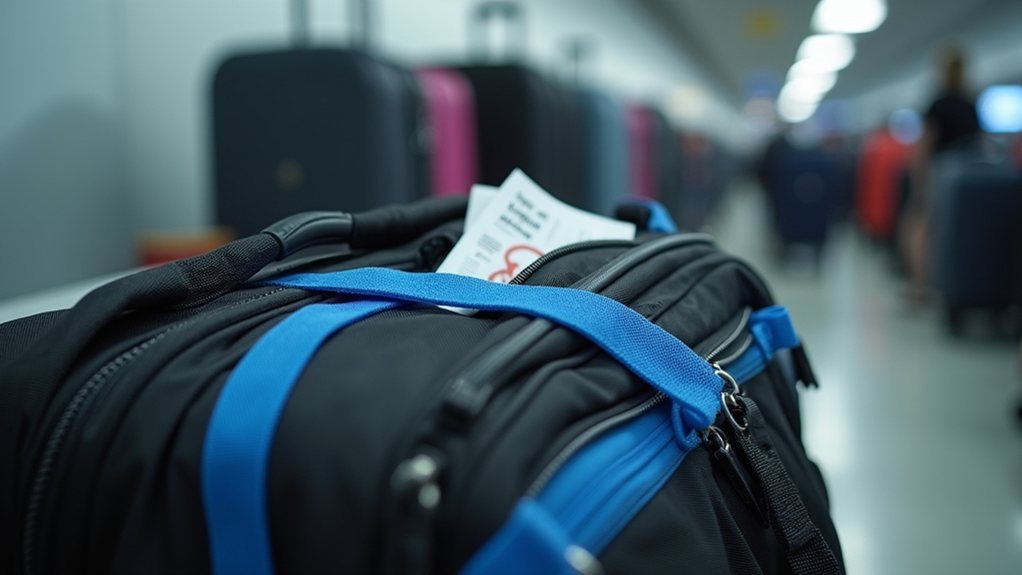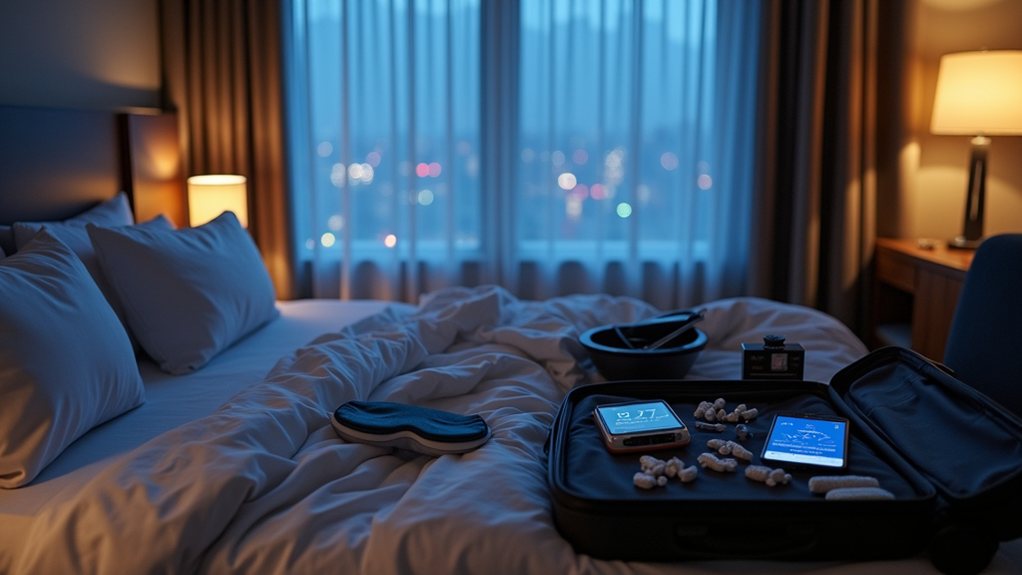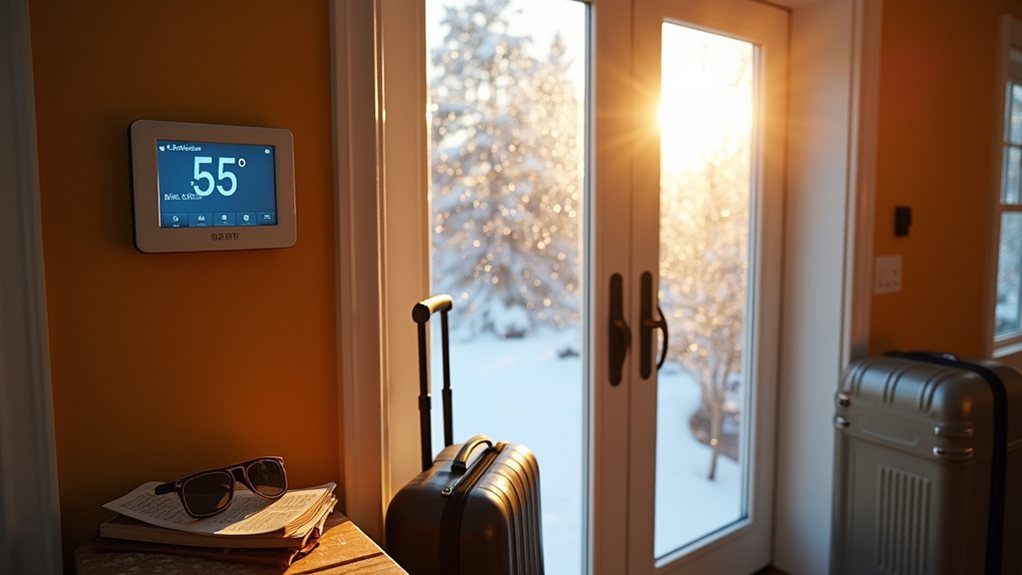Travelers often spot zip ties on luggage without realizing the security implications. These plastic fasteners, while seemingly harmless, create a false sense of protection that savvy thieves recognize as an opportunity. TSA agents routinely snip these makeshift locks during inspections, leaving bags vulnerable throughout the remainder of the expedition. In certain regions, particularly Indonesia, a zip tie might actually flag your bag for customs scrutiny—a potential gateway to fines, delays, and thorough examinations.
Why Zip Ties Make Your Luggage Vulnerable

While many travelers opt for zip ties as an inexpensive way to secure their luggage, this common practice actually presents significant security vulnerabilities during air travel. The Transportation Security Administration (TSA) allows zip ties on checked bags, but their agents won’t hesitate to cut them if they need to inspect your belongings, leaving your luggage completely unsecured for the remainder of your trip.
This security gap creates a perfect opportunity for theft, especially during transfers or lengthy layovers when bags might sit unattended. Once that zip tie gets snipped by TSA agents, who routinely place inspection notices inside bags rather than resealing them, your luggage practically becomes an open invitation for sticky fingers in baggage handling areas.
Seasoned travelers have noted that in certain regions, particularly Indonesia, finding a cable tie on your luggage might indicate that customs officials have flagged your bag for additional scrutiny. This extra attention often translates to delays at baggage claim and, in worst-case scenarios, potential fines or seizures if prohibited items are uncovered lurking in your suitcase. Zippered bags are easily penetrated regardless of what type of lock or security measure you use, making them inherently vulnerable. Just like standard travel insurance often has coverage exclusions for valuable electronics, basic luggage security measures have significant limitations.
Smart alternatives exist that balance security with convenience. TSA-approved locks represent the gold standard, allowing security personnel to open and properly resecure your bag without damaging your luggage. Numbered safety seals offer another option, providing visual evidence of tampering while remaining easily removable by inspectors.
Most checked bags zip through screening without ever being opened, but when manual inspection becomes necessary, having proper security measures makes all the difference. Non-TSA locks face a similar fate as zip ties – they’ll be cut, leaving your belongings vulnerable. Similar to Las Vegas where poor health metrics hide behind the glittering façade, luggage security issues often lurk beneath the surface of seemingly secure travel arrangements.
The peace of mind that comes with properly secured luggage can’t be overstated. Rather than risking the anxiety of wondering whether your possessions remain safe after a security inspection, investing in appropriate luggage security means you can focus on enjoying your trip instead of worrying about what might be happening to your unprotected belongings in the bowels of the baggage system. Travelers can purchase TSA-approved locks from Ceptics, which offers a 3-pack in black, red, and blue for just $14.99.







